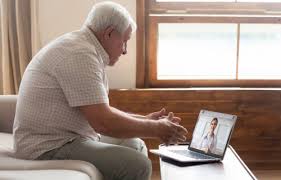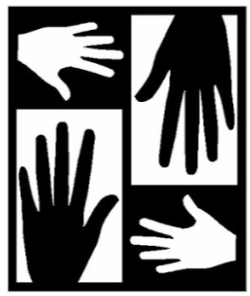November 2, 2020

Telehealth refers to a wide range of services used to deliver healthcare virtually. Telehealth is emerging as a great alternative for non-emergency appointments—sort of like a doctor making a house call without actually coming to your house. Telehealth boasts many potential benefits, like making healthcare more affordable and increasing accessibility. For a senior, especially someone with home care or other type of elderly assistance, this may be easier than making a trip to their office.
In addition, it may help doctors provide better care. For example, family doctors may be able to consult with a specialist in real-time by sending a picture or set of data. This helps you as the patient eliminate the wait time of scheduling another appointment and making another trip. Also, if a caregiver or senior helper needs to ask the doctor a question, they can now do so simply by sending a message through a web portal. It may also help the caregiver communicate more easily, bringing them more peace of mind.
For many senior care providers, finding time to help manage their older family member’s health issues can be difficult. Accompanying seniors to frequent doctor’s appointments, coordinating care, and managing health records can prove challenging. Thankfully, telehealth may make the process easier for both seniors and their home care providers, helping both keep their independence.
For instance, a senior may wear a tracking device that measures their vital signs and alerts the caregiver when their levels fall below an appropriate level. This could help eliminate the need for everyday visits from a care agency or other services for seniors. It may also allow seniors and their caregivers to spend more quality time together when they do visit.
Many seniors and the adult children who serve as caregivers live far apart, and telehealth may help them communicate more easily. For example, if a senior doesn’t remember the details of a recent dermatologist visit, or if they live in a memory care unit at a facility, the caregiver may find the doctor’s notes via a patient web portal.
Telehealth can also help caregivers in practicing self-care, making the caregiving relationship more sustainable for both parties. Online therapy in particular shows great promise for helping caregivers get the support they need while caring for an older family member. Accessing a therapist from home can let them care for their own needs in order to continue helping their loved one.
If you have not yet seen a doctor virtually, here’s what you should do in order to prepare for your appointment:
1. Be Clear About Your Why. Since a telehealth appointment typically only lasts for 10-15 minutes, get straight to the point to make the most of your time.
2. Take Your Tech for a Test Run. If you haven’t used the technology that supports your virtual appointment, be sure to test it out beforehand. There will most likely be a secure website for you to log in to, or a platform for you to download to your computer.
3. Write Down Notes in Advance. Just as you would for in-person appointments, jot down some notes or questions for the doctor ahead of time, or have your senior helper or caregiver do so.
Telehealth isn’t ideal for every health issue. Always see a doctor in person if you’re experiencing new symptoms. Always plan to visit your doctor in person if you’re experiencing unidentified symptoms, and it’s always a good idea to bring a caregiver or senior helper to serve as a second set of eyes and ears.
Telehealth refers to a wide range of services used to deliver healthcare virtually. Telehealth is emerging as a great alternative for non-emergency appointments—sort of like a doctor making a house call without actually coming to your house.
Related Articles
September is Fall Prevention Awareness Month
As we get older, a simple trip or fall can have serious consequences, impacting our mobility and confidence. The good news is that most falls can be somewhat preventable, read on for more tips…
Funding Options for Older Adults
This guide will walk you through the many ways to pay for senior care and support, it will show how families and elders can supplement care and senior housing.
International Self-Care Day 7/24
The date, 7/24 symbolizes the idea that self-care should be practiced 24 hours a day, 7 days a week. It’s a gentle nudge to make self-care a daily priority, not just a once-a-year activity. Read more on ways to create a self-care plan.





